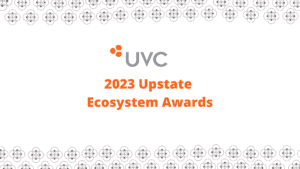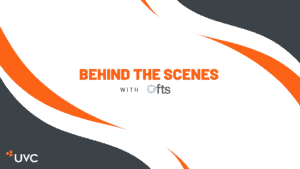By: Maureen Newman, UVC Biomedical Engineering Community Connector
As a student in the Technical Entrepreneurship And Management (TEAM) Program at the University of Rochester, I was fortunate to be a part of the Pre-Seed Workshop (PSW) held by High Tech Rochester on November 6, 7, and 14th. Although we are only past PSW “Kick Off” and “Day One,” I have already seen and experienced the value PSWs have to entrepreneurs and start-ups looking to break a new product through to commercialization.
To clarify, PSW is not about funding new opportunities. Although some technologies will see a financial boost as a result of PSW, the main goal is to help the Idea Champions determine if their thought children are worth another 1,000 hours of effort in order to develop and commercialize new products. To do this, High Tech Rochester furnished each of the thirteen Idea Champions with teams of subject matter experts, coaches, contributing observers, and university students. Some teams were also fueled with patent attorneys, marketing professionals, and accountants.
My team, “HEMO-BOX” was championed by a fellow student in the TEAM Program. Courtney Astemborski, BS 2014 Biomedical Engineering at University of Rochester, brought her senior design project into PSW with hopes of seeing if the project could be matured into a product poised for commercialization. “I’m trying to get some more perspective, at least regarding prospective customers,” said Astemborski.

Courtney Astemborski, Craig Geller, Amy Lerner, and Mike Sisson work on HEMO-BOX. Courtesy of Bob Loeb, HTR.
Pre-Seed Workshop was structured around answering questions that are vital to answer when determining if a new product has market potential and is worth investing time and money to turn an idea into reality.
First on the agenda, after making initial introductions and receiving background on the blood transporter [in Astemborski’s interest, limited detail will be given concerning HEMO-BOX], was to determine how proprietary is the product? Our team struggled with determining the potential for patenting HEMO-BOX. Many of the individual components and concepts contained within HEMO-BOX have patents, but no patent brings all components together into one omnibus patent, indicating some potential protection.
We had a much easier time with our next task: what “pain” does it address? We created scenarios in which HEMO-BOX could be useful and began to blow up market size and potential consumers. From these identified pains, we were able to write Value Proposition Statements that captured the “who, what, and why” of HEMO-BOX that makes it a worthwhile product.
These ideas segued into how big is this opportunity? Industry reports and databases made accessible by High Tech Rochester and university student access to University of Rochester Libraries were instrumental to digging into market size. We identified our Total Available Market, Served Available Market, and Target Market. Focusing solely on New York State as an initial target market, we estimated a demand of 2,500 HEMO-BOX units, which could translate into $750,000. Worldwide, this figure could reach the order of 150,000 units and $45 million.
How will you acquire customers? and Where is your technology today? were the final items of discussion. During these sessions, we touched lightly upon how HEMO-BOX would reach the market, what is currently limiting its market entrance, and if there is a willing and able team to bring it to market outside PSW.
The end of Day One concluded with three-minute team presentations by Idea Champions that gave a check-in of progress so far. Homework for each team is to compile a ten-minute presentation answering sub-questions and digging even deeper into whether or not the product has life beyond PSW. Day Two will center around these presentations.
By and large, PSW has been valuable to my perspective as a potential entrepreneur or start-up business partner. It has given me first-hand experience in making decisions that are essential when determining if an idea belongs on the market or in my mind as just that–an idea. Day Two will be just as instructive, where we will receive final coaching on topics for our presentations.
My biggest advice for anyone interested in a PSW: bring an idea that you have poured your heart into enough that it is at least a viable product. I imagine teams without a concrete product struggled initially due to necessary clarification before moving forward. Even with HEMO-BOX in the prototype stage, we at times struggled with answering the cold, hard questions entrepreneurs face. Do your due diligence, identify your problem, and be ready for an energetic team of individuals truly dedicated to seeing you become a champion.





